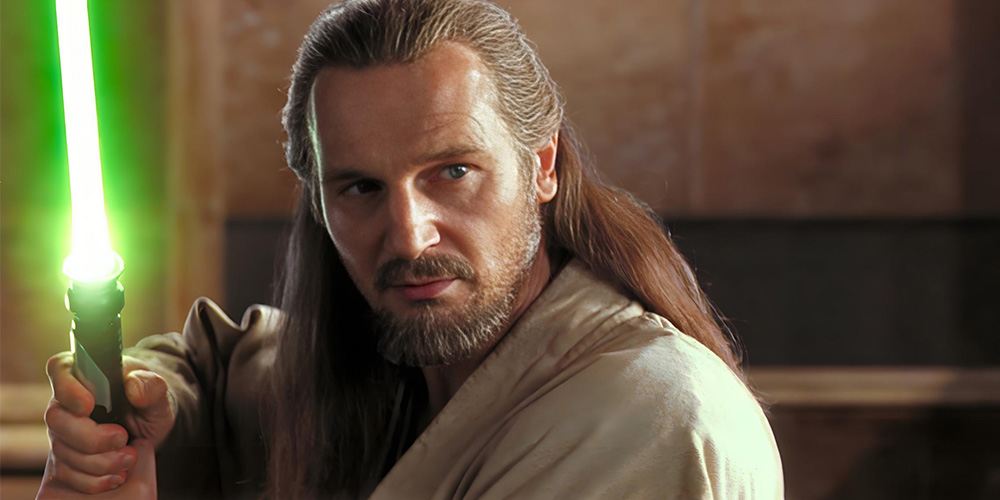When Qui-Gon Jinn fell in the damp furnace tunnels beneath Naboo, Obi-Wan Kenobi's anguished cry tore through the air—that moment marked the end of the Battle of Naboo, but the curtain was only just rising on a far greater tragedy. Darth Maul's crimson lightsaber pierced not only the body of a Jedi Master but seemingly severed an artery in the very fate of the galaxy. Had Qui-Gon Jinn’s path with the Force not ended there, where might galactic history have flowed?
Qui-Gon Jinn and Anakin: A Radically Different Apprenticeship
Qui-Gon's philosophy for training Anakin would have inevitably clashed fundamentally with the Jedi Council led by Yoda and Mace Windu. He possessed a keen insight into the emotional power within Anakin—a force containing immense potential, yet shadowed by abyssal depths. Qui-Gon was far more likely to understand Anakin’s unbreakable bond with his mother, Shmi. Imagine if he had permitted, or even assisted, Anakin in maintaining contact with her in his early years, perhaps even attempting to rescue the enslaved Shmi on Tatooine—that pivotal traumatic event which later haunted Anakin with nightmares of vengeance and drove him to slaughter the Tusken Raiders might never have occurred. The smoldering resentment Anakin felt towards the Jedi Code’s suppression of human connection, under Qui-Gon’s more compassionate guidance, could perhaps have been channeled into a warm candle’s glow rather than a conflagration consuming everything.
The Jedi Order: Winds of Change from Within
Qui-Gon Jinn was always a dissenting voice within the Jedi Council, questioning dogma, valuing the Living Force, and believing the Jedi should not remain aloof from politics. Had he survived, his senior status and unique insights would have made him a powerful catalyst for reflection and reform within the Order. Regarding the critical event of the clone army, Qui-Gon’s wariness of the mysterious directive would have far exceeded the Council’s. Picture him investigating Kamino alongside his former apprentice, Obi-Wan—the web of conspiracy meticulously woven by Chancellor Palpatine behind the secretly bred clone army might well have been unraveled much sooner by Qui-Gon’s discerning eye. The Jedi Order might not have stepped unwittingly into the trap designed for their own destruction.
Palpatine's Plot: An Unexpected Obstacle
Palpatine’s rise depended on chaos, division, and the shortsightedness of his opponents. The mere existence of Qui-Gon Jinn would have been like an uncontrollable piece unexpectedly dropped onto the Sith Lord’s carefully laid board. Qui-Gon possessed a deep understanding of the mysteries of the Force’s balance and a far keener insight into the nature of politics than Masters like Yoda, who focused more on spiritual pursuits. Qui-Gon would likely have become a key advisor to Chancellor Valorum or reformers like Padmé Amidala after the Naboo crisis, exerting influence at the heart of the Republic with his pragmatic approach. When Palpatine sought to seize emergency powers during the Separatist crisis, Qui-Gon Jinn would likely have been the clearest and most forceful voice of opposition in the Senate, an insurmountable barrier on Palpatine’s path to becoming Emperor.
The Clone Wars: A Rewritten Script
With Qui-Gon alive, the Clone Wars would have unfolded very differently. The Jedi Order’s involvement with the clone army would have been far more cautious and skeptical; the war might not have erupted so swiftly and completely, and its scale might have been contained. More crucially, Anakin Skywalker—that supernova in the Force—guided by Qui-Gon’s wisdom and warmth, would in all likelihood not have fallen into the abyss of the dark side. Darth Vader, the figure igniting his blade within the Jedi Temple, would never have been born. Even if war still broke out, the Jedi Order would not have been caught off guard and shattered by the lightning strike of Order 66. The shadow of the Galactic Empire might never have fallen across the galaxy.
Qui-Gon Jinn’s fall in the furnace tunnels of Naboo signified far more than the sacrifice of a single Jedi Master. His death was like a heavy stone cast into the turbulent river of galactic fate; the ripples eventually swelled into tidal waves, reshaping the trajectories of countless lives. Had he survived, a different Jedi Order might have emerged—one more attuned to human emotion, more actively engaged with reality, and far more vigilant against political intrigue. Anakin Skywalker’s restless spirit might have found balance through understanding and guidance. And Palpatine’s intricately woven web of deception might have been torn apart before it was fully spun.
History cannot truly be rewritten, but this pivotal turning point in Qui-Gon Jinn’s destiny, with its profound dramatic power, reveals to us: the survival or loss of a single individual can sometimes shift the balance of an entire galaxy. When Qui-Gon’s life was extinguished by Maul’s blade, could it be that a brighter future for the galaxy was extinguished with it? This tragic possibility makes his presence within the Star Wars saga all the more weighty and eternal.

